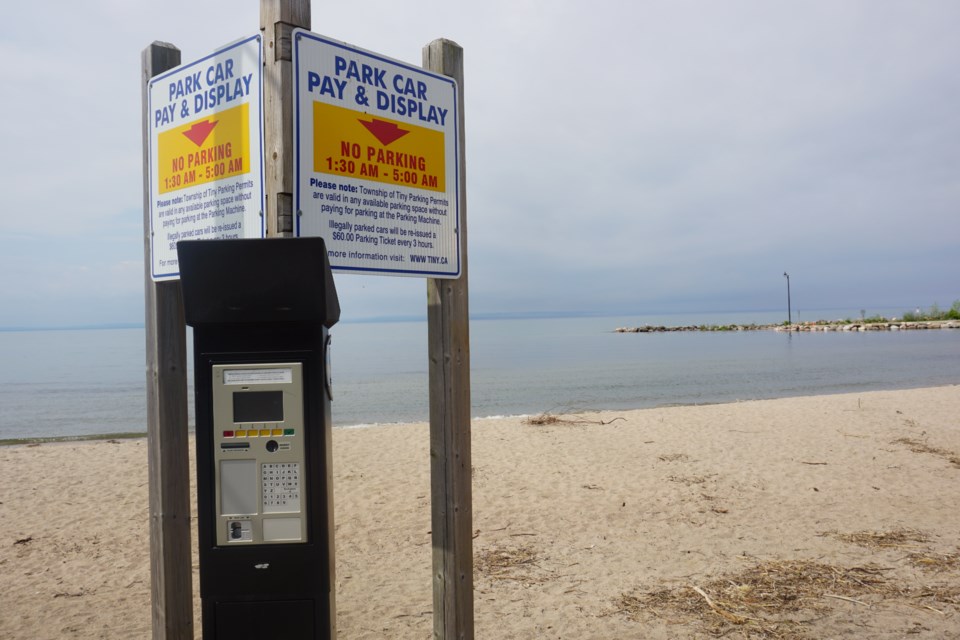A recent non-resident parking decision by Tiny council has sent unhappy ripples throughout some regional social media channels
Each day starting April 15 through to October 15, only 14 daily parking permits will be available to non-residents – defined by the program as residents of Midland, Penetanguishene, Tay Township and Springwater – on a first-come first-serve basis at a cost of $20 per day.
The decision was made at a recent committee of the whole meeting, which Tiny council effortlessly approved.
At the previous meeting of council, the topic of non-resident parking permits was discussed with some in-depth focus being provided to availability of spaces should non-residents arrive at a location to find parking full. Council requested that chief municipal law enforcement officer Steve Harvey explore the flexibility of the new digital parking platform to include the daily non-resident permits and report back; the proposal was confirmed and accepted at this meeting.
In 2021, six-month non-resident parking permits increased to 225 from previous years as a result of the pandemic, which caused conflict as an overflow of registrations on the purchase deadline resulted in a lottery.
Sean Miskimins, co-founder of the 4,800 member Beach Rights group on Facebook, rationalized what the municipality was attempting to accomplish through the recent resolution.
“I think what the township is trying to figure out is: How do they create more equity amongst non-residents,” said Miskimins, “so that way there’s greater access for the greater whole as opposed to the few that got in early enough to secure a non-resident pass.”
Miskimins provided an example by one Beach Rights member who noted that the usage of the $100 permit from 2021 could potentially be the equivalent of $1,600 through the 2022 season if daily permits were solely relied upon, provided one of those 14 permits were even available to the non-resident.
One consideration Miskimins wanted to know was toward data analysis of the non-resident parking permits, in regards to the frequency of seasonal purchasers using or not using their allotted spots.
Following council’s approval of the non-resident parking structure for 2022, a separate recommendation to approve HotSpot Parking for mobile payment solutions in Tiny was carried. Within the option provided, it stated that the devices necessary to validate parking in Tiny through the scanning of a license plate would be the same devices being implemented in the 2022 daily non-resident parking system.
According to Miskimins, the issue doesn’t have an easy solution, and will require more consultation with the public, especially the neighbouring municipalities which qualify for non-resident permits.
“Beach parking – I’m not going to call it an access issue because most of the parking spots are at municipally-owned beaches or parks – it’s going to be a challenge. There’s just not enough land or space to accommodate all this parking,” Miskimins noted.
During the February meeting, Harvey stated to council, “This is a concept and it can be tried for 2022, and if it doesn’t work out then we can re-evaluate it. We’ve been looking at a non-resident permit system every year and tweaking it to suit it, and if this tweak turns out to be too much then it can be re-evaluated for 2023.”
Full details of the new program will be released before the 2022 permit parking season commences on April 15th. Information on parking in Tiny Township can be found on the parking page of the township website.
The non-resident parking permit program report, the 2022 criteria, and HotSpot mobile app overview can be viewed within the agenda page located on the Tiny Township website.
Archives of council meetings are available to view on Tiny Township’s YouTube channel.



